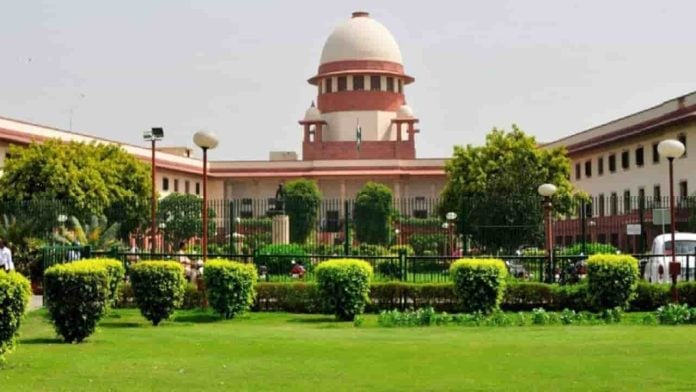The Supreme Court has directed the Directorate of Enforcement (ED) to furnish a copy of written grounds of arrest to the accused person at the time of arrest as a matter of course and without exception.
Coming down heavily on ED for not furnishing the grounds of arrest to the accused in a written form in the instant case, the Bench of Justice AS Bopanna and Justice Sanjay Kumar declared the arrest of Pankaj Bansal and Basant Bansal as illegal and ordered their immediate release in a money laundering case against the real estate group M3M.
The Apex Court, while noting that the ED officer orally informed the grounds of arrest to the accused, observed that this chronology of events spoke volumes and reflected rather poorly, if not negatively, on the ED’s style of functioning.
It further said that such a conduct would not fulfil the mandate of Article 22(1) of the Constitution and Section 19(1) of the Prevention of Money Laundering Act (PMLA).
Mere passing of an order of remand would not be sufficient to validate the grounds of arrest, added the Bench.
Every action of ED, which was a premier investigating agency charged with the onerous responsibility of curbing debilitating economic offence of money laundering in the country, in the course of such exercise was expected to be transparent, above board and conforming to the pristine standards of fair play in action, it noted.
Flaying the ED for its ‘arbitrariness,’ the top court of the country observed that the federal agency was given far-reaching powers under the stringent Act of 2002. It was not expected to be vindictive in its conduct and must be seen to be acting with utmost probity and with the highest degree of dispassion and fairness, added the Apex Court.
It further refused to accept non-cooperation in response to summons issued under Section 50 PMLA as a ground for arrest.
The Bench said the failure of the accused to respond to the questions put before them by the ED would not be sufficient in itself for the Investigating Officer to opine that they were liable to be arrested under Section 19.
As per Section 19, someone could be arrested only if the officer had reasons to believe that the person was guilty of offences under PMLA, it noted.
The counsel for ED argued that the responses given by the accused were ‘evasive’ in nature.
The Apex Court rejected this argument on the grounds that in any event, it was not open to ED to expect an admission of guilt from the person summoned for interrogation and assert that anything short of such admission would be an evasive reply.
The Bench referred to the case Santosh S/o Dwarkadas Fafat vs State of Maharashtra, pointing out that custodial interrogation was not for the purpose of ‘confession’ as the right against self-incrimination was provided by Article 20(3) of the Constitution.
The court held in Santosh that merely because an accused did not confess, it could not be said that he was not cooperating with the investigation.


